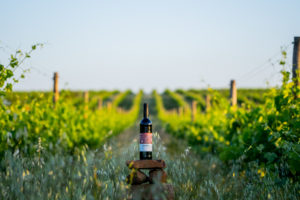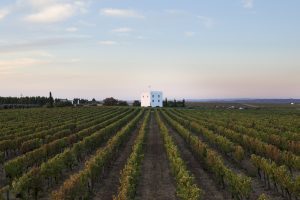All the things we do have the same objectives – increasing the fertility and dynamic of our soils and the sustainable control of pests and disease. To do so, we had to know more about their geology. We did an exhaustive survey of our fields, where we identified various areas of schist and granite derivatives, which allowed us to better define how we should proceed in each plot.
The sowing plan was one of the solutions we found to increase the fertility of our soil. One of the key objectives of planting legumes is to create green manure, which provides cultures with the nitrogen they need naturally, without using chemical-based products.
Have greater knowledge about our soils and knowing what kind of grapes we want, we sow different sees for each plot. We sow different seeds, some are grass, others are legumes, so each plot maintains the fertility we believe appropriate for the type of grape we want to produce.
Another way of changing the dynamic of our soils is by introducing and incorporating the compost generated via by-products of our operations. Using compost increases organic matter in the soil and boosts microbiological activity. As a result, we also improve water retention, which is fundamental for the cultures to develop healthily and fulfil their cycle naturally.
One of the biggest challenges in organic farming is the sustainable control of pests and diseases. We had to do an exhaustive survey of all pests at the Herdade and a survey of the auxiliary fauna, which are the predators of those pests. We decided to plant bushes that house auxiliary fauna, both in the vineyards and olive groves.
These and other measures saw us work with nature on the details, thus achieving our objectives. This was the path we have fashioned and the one we believe in».

